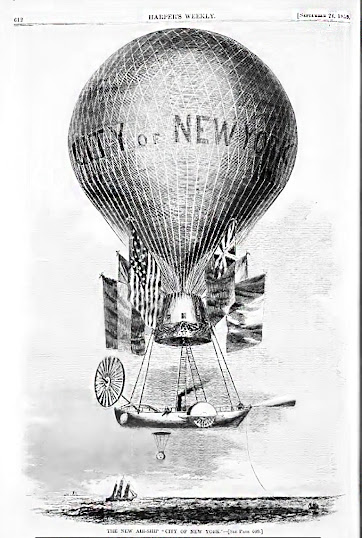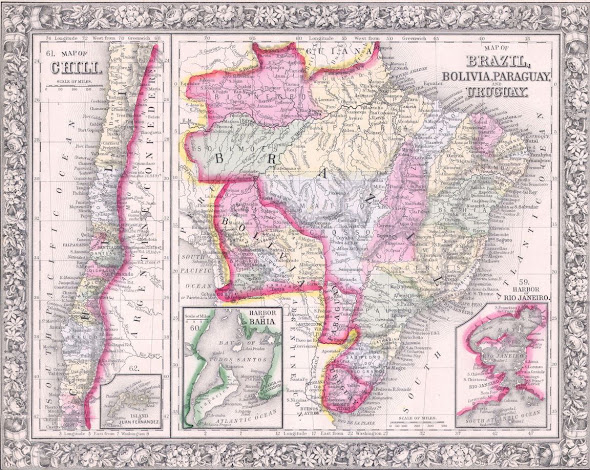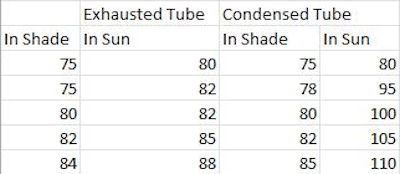Gotham's First Crime Boss Defends Himself
Gotham's First Crime Boss Defends
Himself
"The Captain," as Isaiah Rynders (1804-1885) was known, was a violent man and a violent racist. He earned the captain's title for briefly captaining a sloop (one sail) packet boat along the Hudson River before becoming a gambler and knife fighter. Some time in the late 1830s he appeared in New York City and worked his way up in politics as the enforcing arm of the Tammy Hall Democrats.
Rynders owned a string of saloons in the city and gathered around him men who were young, violent, and looking for money. He was head of the crime gang Dead Rabbits, a thoroughly criminal enterprise, and president of The Empire Club," which generally did the rough enforcement for Tammy Hall.
"The Captain" Rynders was a leader in what was called "The Astor Opera House Riot in May,1849. (Worthy of its own future blog entry.) In the 1850s he and his gang routinely attempted to disrupt any anti slavery group bold enough to meet in New York City.
In 1844 Rynders was credited with delivering New York's electoral votes to James K. Polk to defeat Henry Clay. Polk rewarded Rynders with a lucrative no show job as head of customs in the port of New York. Afterwards, Rynders was made a US Marshal, a position he used to terrify blacks and break up abolitionists' conventions.
There was no such thing as the secret ballot then. For whom one voted was public.
Gang members would appear at a polling place known to be populated by Whigs, or other political opponents and yell. As soon as the gang members had mixed into the crowd, Rynders would shout, "I have a hundred men scattered among you and if you don't vote right or leave now we'll start dirking (stabbing) every last one of you."
People scattered because they knew Rynders meant it--and could get away with it.
NY Herald January 14, 1851
To the
public. New York January 13, 1851
An article appeared in one of the daily papers in this city, in which it is asserted that the day in which Long, the fugitive slave, was carried back to Virginia, I paraded the streets with a rifle in my hands, exclaiming I wanted to shoot a damned abolitionist. This is a gross, unqualified falsehood, as I did not then, nor have I ever expressed a desire to shoot any person, unless to do so in self-defence (sic). I did not intend to notice this slandering in the abolition papers, as they have been in the habit of abusing me without the least regard to truth, whenever an opportunity offered; but as some of the Sunday papers have reiterated the malicious slander. I deem it but justice to myself to make a candid statement of facts, leaving the public to draw their own conclusions. On the above referred to, I was walking up Broadway with a Gentleman from Baltimore; as we came near the Irwin House, we saw a mob of black and white men (about four fifths black), running towards the door of the hotel. At this moment, a man passing us, saying, “The abolitionists and negroes will kill that man.” I immediately ran towards the door around which the mob had gathered, and appeared to be violently excited. Some of them were armed, and said they would kill the damned white slave catcher if they could only get at him. A white man said, “Yes, he ought to be killed.” It appeared they were trying to open the door, while some persons on the inside were keeping it shut. One of the blacks said, “Go round to the back door and catch him when they put him out.” I made my way to the back door after some hard struggling, and went into the house; there I found several persons who seemed frightened the mob would get in. A young man was standing near the counter where four or five white men, who were assaulting him, by words and gestures, and, as I supposed, were about to turn him out of doors for the purpose letting the black mob to exert their humanity upon a Southern slave- holder. I was somewhat excited and inquired what the man had done to merit such outrageous treatment. I was answered by a cadaverous and unearthly looking individual who was the most violent among the assailants, that he was a slave-holder, and deserved death. I immediately pulled off my overcoat and asked the young man would he fight for himself, “Yes.” “Well then,” said I, “I will lend you a hand,” and immediately the cadaverous looking specimen of humanity who was so very valiant while the young man had no friends, made off at the first appearance of hostilities; in short, the mob left the doors of the hotel and went into the Park; the young man went to some other part of the house, with Mr. Howard, and I have not seen him since and would not know him should I meet him in the street. As I came out of the hotel, a gentleman said to me—“I advise you not to go to the Park this evening, when they take the slave back.” I asked him, “Why?” He told me that, “The white man who instigated the colored men to mob the Southern man, said, as he left the house, that if I made my appearance that evening, he would set the mob on me, or he would make them kill me.” I went home, loaded my rifle and went down Broadway to the Park, with a full and deliberate determination to shoot the man if he attempted to instigate the mob to assault me. I had my rifle with me and walked down to the ferry; not a single friend with me. I did not say I was looking for an abolitionist, or that I wanted to shoot one. That part of the rumor is base calumny, and worthy the source from which it emanated. I sincerely believe that, if the young man refereed to had been turned out of door, his life would have been endangered, if not lost; and yet the abolition papers slander me because I helped to rescue a white man from the fury of a mob of negroes and abolitionists, while nothing is said about the white and black fiends who were about to murder a white man because he was a Southern slave-holder, or had given testimony to the truth before one of our courts. How beautifully consistent are the acts of abolitionists. I have never resisted the officers of the law when in proper discharge of their duty, and this is well known in the Police department. All the policemen that I saw at the Irving House were endeavoring to do their duty.
(Signed ) ISAIAH RYNDERS




Comments
Post a Comment